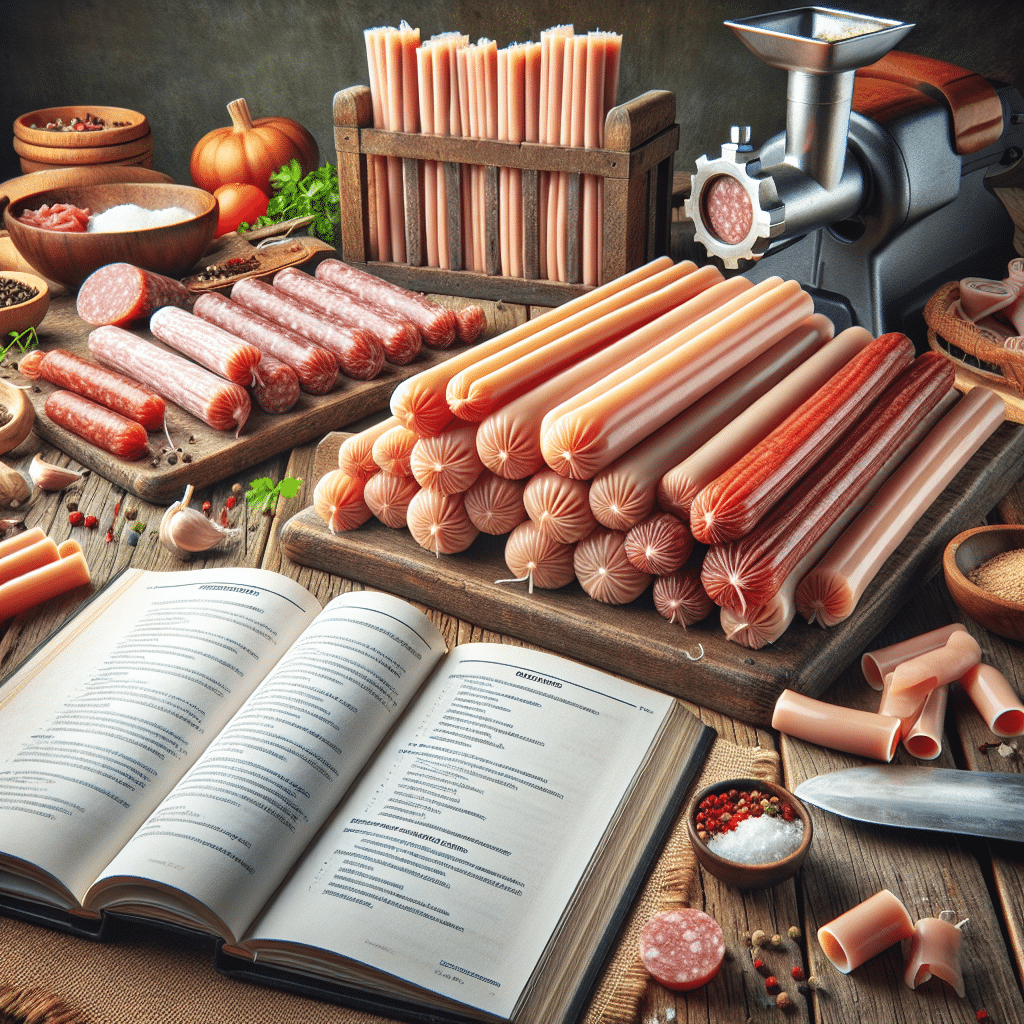Collagen Casings: For Homemade Sausage Lovers
-
Table of Contents
- Collagen Casings: The Ultimate Guide for Homemade Sausage Enthusiasts
- Understanding Collagen Casings
- Benefits of Using Collagen Casings
- Types of Collagen Casings
- Choosing the Right Collagen Casing
- Factors to Consider
- How to Use Collagen Casings
- Tips for Success
- Collagen Casings vs. Natural Casings
- Pros and Cons
- Conclusion: Elevate Your Sausage Making with Collagen Casings
- Discover ETChem’s Premium Protein Products
Collagen Casings: The Ultimate Guide for Homemade Sausage Enthusiasts
For those who take pride in crafting their own sausages, the choice of casing is a critical decision that can affect both the quality and flavor of the final product. Collagen casings have emerged as a popular alternative to traditional natural casings, offering a range of benefits that appeal to homemade sausage lovers. This article delves into the world of collagen casings, exploring their advantages, types, and how they can elevate your sausage-making experience.
Understanding Collagen Casings
Collagen casings are made from the collagen in cow or pig hides, bones, and tendons. The process involves cleaning, processing, and extruding the collagen into tubes of various diameters suitable for sausage making. These casings have gained popularity due to their uniformity, strength, and ease of use.
Benefits of Using Collagen Casings
- Uniformity: Collagen casings provide a consistent size and shape, ensuring even cooking and a professional appearance.
- Durability: They are less likely to tear than natural casings, making them easier to handle, especially for beginners.
- Convenience: Collagen casings are ready to use straight out of the package, with no need for soaking or preparation.
- Storage: They have a long shelf life and do not require refrigeration, simplifying storage.
- Versatility: Available in a variety of sizes, they can be used for a wide range of sausages, from small breakfast links to large salamis.
Types of Collagen Casings
Collagen casings come in two main types: edible and non-edible. Edible casings are commonly used for fresh and smoked sausages, while non-edible casings are typically used for salamis and other dry-cured sausages where the casing is removed before consumption.
Choosing the Right Collagen Casing
Selecting the appropriate collagen casing depends on the type of sausage you’re making and your personal preferences. Consider the diameter, strength, and appearance when choosing a casing for your homemade sausage.
Factors to Consider
- Diameter: Match the casing size to the type of sausage you’re making, whether it’s a thin snack stick or a thick bratwurst.
- Texture: Some casings offer a tender bite, while others provide a snap that many sausage aficionados appreciate.
- Appearance: Collagen casings can be clear or mahogany, and some can even be printed with designs or branding.
How to Use Collagen Casings
Using collagen casings is straightforward, but there are some tips and tricks to ensure the best results. Proper stuffing, cooking, and storage are key to making delicious homemade sausages with collagen casings.
Tips for Success
- Stuffing: Avoid overstuffing to prevent bursting during cooking. Use a sausage stuffer for best results.
- Cooking: Collagen casings are more sensitive to heat than natural casings, so cook sausages at lower temperatures to prevent splitting.
- Storage: Store unused casings in a cool, dry place to maintain their quality.
Collagen Casings vs. Natural Casings
While collagen casings offer many benefits, it’s important to compare them with natural casings to determine which is best for your sausage-making needs.
Pros and Cons
- Flavor: Some argue that natural casings impart a better flavor, but many find little difference when using high-quality collagen casings.
- Authenticity: Natural casings may be preferred for traditional recipes, but collagen casings are widely accepted in modern sausage making.
- Ease of Use: Collagen casings are generally easier to use, making them a great choice for those new to sausage making.
Conclusion: Elevate Your Sausage Making with Collagen Casings
Collagen casings are a fantastic option for homemade sausage enthusiasts looking for convenience, durability, and versatility. By understanding the different types and how to use them effectively, you can produce sausages that not only taste great but also have a professional look. Whether you’re a beginner or an experienced sausage maker, collagen casings can simplify the process and yield delicious results.
Discover ETChem’s Premium Protein Products
If you’re interested in high-quality protein products for your sausage-making endeavors, consider ETChem’s range of collagen offerings. Their commitment to excellence ensures that you receive the best ingredients for your homemade sausages.
About ETChem:
ETChem, a reputable Chinese Collagen factory manufacturer and supplier, is renowned for producing, stocking, exporting, and delivering the highest quality collagens. They include marine collagen, fish collagen, bovine collagen, chicken collagen, type I collagen, type II collagen and type III collagen etc. Their offerings, characterized by a neutral taste, instant solubility attributes, cater to a diverse range of industries. They serve nutraceutical, pharmaceutical, cosmeceutical, veterinary, as well as food and beverage finished product distributors, traders, and manufacturers across Europe, USA, Canada, Australia, Thailand, Japan, Korea, Brazil, and Chile, among others.
ETChem specialization includes exporting and delivering tailor-made collagen powder and finished collagen nutritional supplements. Their extensive product range covers sectors like Food and Beverage, Sports Nutrition, Weight Management, Dietary Supplements, Health and Wellness Products, ensuring comprehensive solutions to meet all your protein needs.
As a trusted company by leading global food and beverage brands and Fortune 500 companies, ETChem reinforces China’s reputation in the global arena. For more information or to sample their products, please contact them and email karen(at)et-chem.com today.


